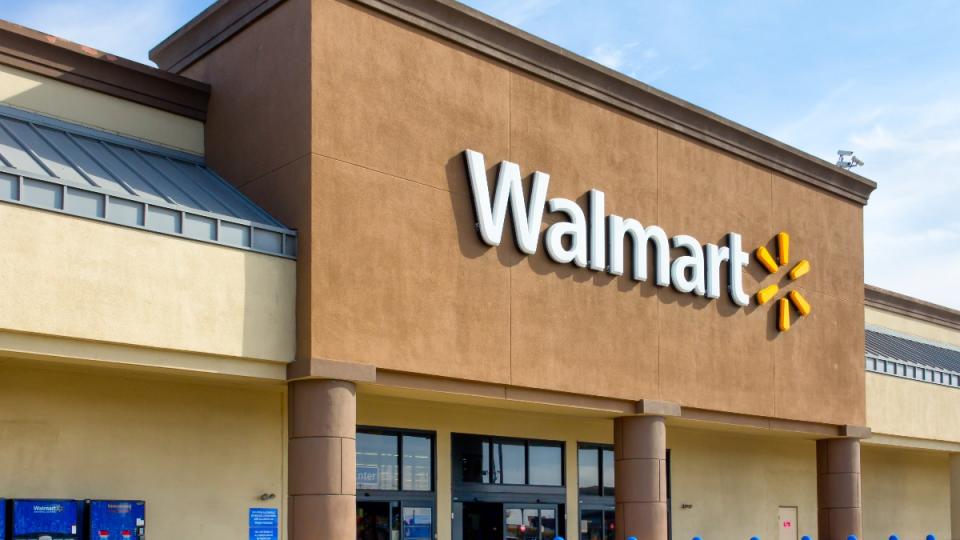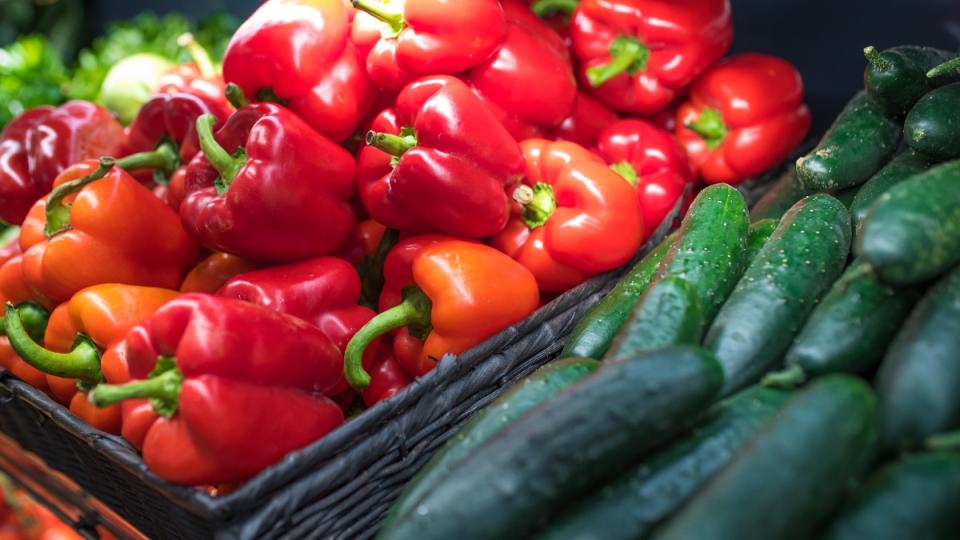Walmart and Aldi Produce Recall: Find Out What Vegetables Were Included Due to Listeria Risk
Fresh veggies are a staple for many households year-round, but supermarket shoppers in a third of U.S. states may be forced to toss theirs out before they can enjoy them. The reason: On July 23, the Food and Drug Administration announced listeria concerns have led to a Walmart produce recall that also impacts some other grocery stores (like Aldi) around the country. Keep reading to find out more about the recall, why it’s a concern and to see the full list of recalled items.
What was in the recall?

The FDA announced a recall of almost 20 different vegetables being sold at Walmart, Aldi and Kroger, as well as local grocery store chains. The affected products were being sold at supermarkets in 18 states: Connecticut, Delaware, Illinois, Indiana, Kentucky, Maine, Maryland, Michigan, Missouri, New Jersey, New York, North Carolina, Ohio, Pennsylvania, Rhode Island, Tennessee, Virginia and West Virginia.
Ohio-based company Wiers Farm Inc. issued the voluntary recall for the specific products (sold at select Walmart stores) below:
Wiers Farm Bagged Poblano, (16-oz. bag)
Wiers Farm Bagged Cubanelle (16-oz. bag)
Wiers Farm Bagged Green Beans
Wiers Farm Bagged Salad Cucumber (2-lb. bag)
Wiers Farm Bagged Serrano (4-oz. bag)
Wiers Farm Organic Bell Pepper (2-count tray)
Wiers Farm Organic Cucumber (2-count tray)
Wiers Farm Organic Yellow Squash (2-count tray)
Wiers Farm Organic Zucchini Squash (2-count tray)
The recall also mentions Freshire Farms Bagged Green Beans (16 oz.) and Freshire Farms Bagged Jalapenos (8 oz.) sold at Aldi stores in Kentucky, New York, Ohio, Pennsylvania, and West Virginia.
What other items were in the recall?

Bagged and packaged produce weren’t the only food items to be included in the new recall. The company also mentioned that produce sold individually and by the pound (at local retail stores in the above states) were potentially affected. This includes an additional 16 vegetables and fresh herbs as listed below:
Anaheim peppers
Cilantro (sold in bunches)
Cubanelle peppers
Cucumber (whole)
Green beans
Green Bell Pepper
Habanero peppers
Hungarian Wax peppers
Jalapeno peppers
Mixed Vegetable Box (shipped to Cleveland and Youngstown Ohio Food Banks only)
Mustard Greens (sold in bunches)
Pickling Cucumber
Plain Parsley (sold in bunches)
Poblano peppers
Serrano peppers
Tomatillos
All of the items in the recall were sold July 5 through July 12, so it's best to check the date on your purchases. This includes the pre-packaged and loose produce offered to customers at both the major retail stores and smaller chains. (While you're at it, check if you have any Snapchill coffee. Click through to learn why it's been recalled).
What prompted the recall?
Like other food recalls, the health and safety of shoppers led to the announcement. In this case, concerns over a possible listeria contamination prompted the company to issue the recall. Eating contaminated food can result in listeriosis, a serious infection that sickens about 1,600 people annually, according to The Centers for Disease Control and Prevention.
Though healthy people rarely fall ill from it, the Mayo Clinic reports that the disease can become quite serious for pregnant women, people with weak immune systems and anyone over the age of 65. Some cases can even be fatal.
This recent recall is part of an ongoing effort to protect customers from possible illness. On July 12, the FDA announced there was a recall for some whole and bagged salad cucumbers sold at select Walmart stores in Indiana, Michigan and Ohio. Wiers Farm shared this was done “out of an abundance of caution.”
What does this mean for me?

If you purchased any of the above products between July 5 and 12, it’s best to dispose of it or return it to the store where you purchased it. Because listeria bacteria can survive both refrigeration and freezing, this is especially important.
Once you’ve removed any potentially contaminated produce, follow the FDA’s cleaning guidelines to keep your home bacteria-free and sidestep potential illness. What they suggest: Wash the inside walls and shelves of your refrigerator, plus any cooking utensils or cutting boards that may have had contact with the food. (Need to clean wooden spoons? Find out how.)
You should also contact your doctor right away if you experience any symptoms of listeriosis after consuming a recalled product. Experts say fever, tiredness, muscle aches, nausea and vomiting are all common. Headaches, loss of balance, stiff neck, confusion and seizures can also occur in severe cases.
For any questions regarding this recall, you can contact Wiers Farm Inc. at (419) 933-2161 or by sending an email to customercare@wiersfarm.com.
Keep scrolling for food stories!
Slim Down With Noodles? Nutrition Pro Says Konjac for Weight Loss Works on Any Diet
Fluffy Coke Is the Latest Viral Drink Craze: But Is It Tasty? Social Media Weighs In
Costco’s Viral ‘Apocalypse’ Food Bucket Lasts 25 Years With 150 Emergency Meals: See What’s Inside

